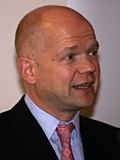| |||||||||||||||||||||||||||||||||||||||||
All 32 London boroughs, all 36 metropolitan boroughs, 10 out of 46 unitary authorities and 88 out of 238 English districts | |||||||||||||||||||||||||||||||||||||||||
|---|---|---|---|---|---|---|---|---|---|---|---|---|---|---|---|---|---|---|---|---|---|---|---|---|---|---|---|---|---|---|---|---|---|---|---|---|---|---|---|---|---|
| |||||||||||||||||||||||||||||||||||||||||
 Colours denote the winning party, as shown in the table of results. | |||||||||||||||||||||||||||||||||||||||||
The 1998 United Kingdom local elections were held on Thursday 7 May 1998. [1] [2] All London borough council seats were elected as well a third of the seats on each of the Metropolitan Boroughs. Some unitary authorities and District councils also had elections. There were no local elections in Scotland, Wales or Northern Ireland.
Contents
- Results
- England
- London boroughs
- Metropolitan boroughs
- Unitary authorities
- District councils
- References
These elections took place on the same day as the referendum on establishing the Greater London Authority.
The governing Labour Party, contesting its first national elections since returning to government 12 months previously, enjoyed great success, now having control of 94 councils, with the second placed Liberal Democrats now controlling 14 and the opposition Conservatives (now led by William Hague) a mere eight.
A by-election for the European Parliament was also held in the Yorkshire South constituency; Labour retained the seat.


